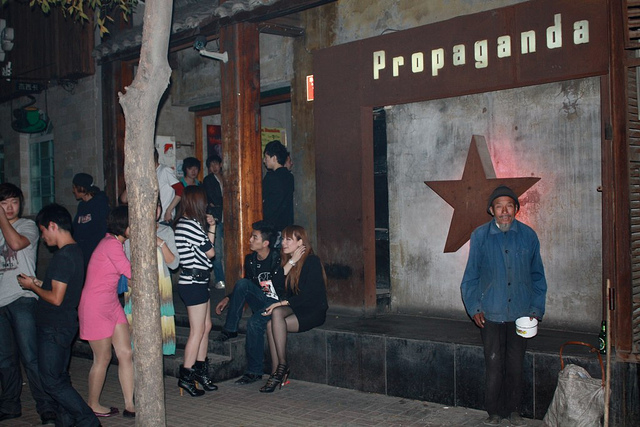“Old Zhao” is an elderly bearded beggar who spends his evenings working the streets of Wudaokou (五道口), in Beijing’s university district. After several years of plying his trade, Old Zhao, with the clinking of coins in his porcelain begging bowl, has become one of the most recognizable figures in the neighborhood. His story is a familiar one for tens of millions of working class Chinese people, even if his current choice of work is not.
For someone who has endured a lifetime of hardship and limited opportunities, he appears remarkably content with his current existence. We spoke with Old Zhao recently and found out what draws him to the indigent lifestyle.
How old are you? Where did you grow up?
I’m seventy years old. I was born in the village of Minquan, in Henan province.
Could you tell us about your early life?
I was a single child and grew up on a farm in Minquan. My mother was a cook and I learned how to cook from an early age. I picked crops on my family’s farm and also served as the village cook for the Production Team (Production Team was the basic accounting and farm production unit in the People’s Commune system that lasted from 1958 to 1984).
I got married at age twenty-four and had a son a couple years later. Now I have two grandchildren. We all lived and worked on the family farm, until three years ago, when I left. The farm has wheat, corn, and other crops. We have a self-constructed three-room house. We also have a backyard, with chickens, dogs, and pigs.
What do you think of Mao Zedong (Chairman Mao)?
He was the leader of the Revolution and the current leader of China is following in his example. I have nothing else to say.
Was life on your farm and in your community affected by the Cultural Revolution?
Not at all.
Did you attend school?
I attended one year of elementary school, but then dropped out to work on the farm. I can’t read and write. The only Chinese characters I understand are those for my name.
When did you first come to Beijing? Why did you decide to become a beggar?
